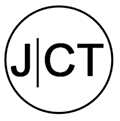When transitioning into a new role there's a lot to learn, and even more comes with a new organization. My journey at TGR Foundation has been no different. I've learned a lot about the foundation and settled well into my position, but as with most new chapters in life, there is much more to learn. I'm enjoying the process. In celebration of my first 90 days on the job, hello full benefits, I've shared seven tips for anyone entering their probationary period in a fresh position.
1. Ask questions.
Take interest in the organization beyond your role and the parameters of your workspace. The more you know the more you'll be able to understand your place in the organization, navigate your path to success, and develop quality relationships with leaders and allies who can help you achieve your goals.
2. Learn the mission and values.
Everything should circle back to it. It could be why you’re there, but even if it isn't, knowing it can help you understand how and why specific aspects of the company came to be and how you and your position fit into the puzzle. Also if the mission and values align with your beliefs and interests you'll be able to identify practices and behaviors that align and contribute to the discussion of the company culture as it relates.
3. Understand how your role helps the company or organization achieve its goals.
This will make your responsibilities much more rewarding and give you the motivation to bring your best self to work and achieve results.
4. Track your performance.
Being able to see what you’ve accomplished at the end of the day, week or month will be satisfying to you. It will also help when it comes time for your mid-year or annual review. Seeing checkmarks on my to-do list at the end of the week is rewarding for me, but seeing progress beyond daily tasks or how those tasks contribute to the bigger picture is even more fulfilling.
5. Be able to communicate how your performance compares to your job description.
This will be easier if you follow the last step. You’ll also be more confident when you walk into your review knowing that whether you’re on track or not you can communicate:
issues or barriers to achieving success
ways to improve your performance
goals that should be refined
needs to keep the momentum going
These are all topics that should be apart of the discussion during your review.
6. Get to know your coworkers.
This is especially relevant to those who have been employed at the company or organization for two or more years. They can help you understand the organizational structure and culture beyond words on a website or page in your handbook. It also helps to have a friendly face and someone to rely on when you have a question that you don’t know who to turn to to find an answer.
7. Identify at least one thing about your company that makes you proud to be a part of it.
Although this is easier for some than others, it’s important in being able to see and explain why you spend 40+ hours a week devoting time and energy to a company or organization. It’s helpful to have a why outside of income, especially when you're having a bad day or week, and you're ready to walk out the door.
8. Add value beyond your position.
Offer support or expertise outside of your role. Share solutions to issues you've noticed from a fresh perspective. Identify areas where you can help while learning or improving skills.
What habits or accomplishments did you implement within your first 90 days of your position that still benefit you today? Share below.
XX,
Jasmine C. Tate

